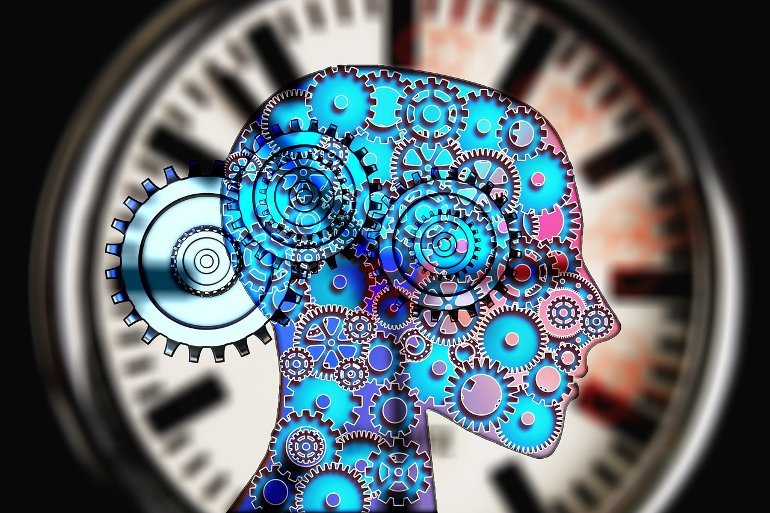Summary: Women on the autism spectrum are more likely to be diagnosed with a co-morbid mental health disorder, such as depression, anxiety, or increased risk of self-harm than males with autism.
Source: Karolinska Institute
Autistic young men and women are more affected by psychiatric conditions and have an increased risk of hospitalization as a result of their mental illness compared with non-autistic people. Autistic women are particularly vulnerable.
This is shown by researchers from Karolinska Institutet in a study published in JAMA Psychiatry.
Autistic people have an increased risk of suffering from mental illness. Current data indicates that autistic women are more vulnerable than autistic men, but few studies have been able to establish that there are sex differences.
Researchers from Karolinska Institutet have now conducted a register-based cohort study with more than 1.3 million people in Sweden who were followed from the age of 16 to 24 between 2001 and 2013. Just over 20,000 of these individuals were diagnosed with autism.
The researchers found that by age 25, 77 out of 100 autistic women, compared with 62 out of 100 autistic men, had received at least one psychiatric diagnosis.
“We saw an increased risk of eleven different psychiatric conditions, including depression, anxiety disorders, self-harm and difficulty sleeping,” says Miriam Martini, a doctoral student in psychiatric epidemiology at the Department of Medical Epidemiology and Biostatistics at Karolinska Institutet and first author of the study.
Something that Miriam Martini finds particularly worrying is that 32 out of 100 autistic women had been hospitalized as a result of their mental illness, compared with 19 out of 100 autistic men. For non-autistic people, the corresponding figure was less than five out of 100.
The study focuses on young adults who are at a crucial time in their life when many mental health problems increase, while the transition to adulthood often means poorer access to care, says Miriam Martini.

“Health care for young adults needs to be expanded, especially for autistic women, so that mental illness can be detected in time to avoid worsening of symptoms resulting in hospitalization,” says Miriam Martini.
The reason why autistic women are more affected by mental illness than autistic men is not clear, but in the study, the researchers point to several possible factors. Previous research has shown that autistic women to a greater extent use compensatory behaviors to camouflage their autism, which may be due to the fact that women generally tend to adapt to the expectations of those around them. This delays diagnosis and the provision of assistance, which can negatively affect their mental health.
Another possible explanation may be that it could be difficult to detect autism in women using diagnostic criteria.
“It may be that autism manifests differently in women than in men, which means that women are not detected using today’s diagnostic criteria. This is something we need to do more research on,” says Miriam Martini.
About this autism and mental health research news
Author: Press Office
Source: Karolinska Institute
Contact: Press Office – Karolinska Institute
Image: The image is in the public domain
Original Research: Closed access.
“Sex differences in mental health problems and psychiatric hospitalization in autistic young adults” by Miriam Martini et al. JAMA Psychiatry
Abstract
Sex differences in mental health problems and psychiatric hospitalization in autistic young adults
Importance
Psychiatric disorders are common among autistic children and adults. Little is known about sex differences in psychiatric disorders and hospitalization in early adulthood.
Objective
To examine sex differences in psychiatric diagnoses and hospitalizations in autistic compared with nonautistic young adults.
Design, Setting, and Participants
This population-based cohort study assessed all individuals born in Sweden between 1985 and 1997. A total of 1 335 753 individuals, including 20 841 autistic individuals (7129 [34.2%] female individuals), were followed up from age 16 through 24 years between 2001 and 2013. Analysis took place between June 2021 and August 2022.
Exposures
Autism was defined as having received at least 1 clinical diagnosis of autism based on the International Classification of Diseases.
Main Outcomes and Measures
The cumulative incidence of 11 psychiatric diagnoses up until age 25 years was estimated, and birth year–standardized risk difference was used to compare autistic female and male individuals directly. Sex-specific birth year–adjusted hazard ratios (HRs) with 95% CIs were calculated using Cox regression. Analyses were repeated for inpatient diagnoses to assess psychiatric hospitalization.
Results
Of 1 335 753 individuals included in this study, 650 314 (48.7%) were assigned female at birth. Autism was clinically diagnosed in 20 841 individuals (1.6%; 7129 [34.2%] female) with a mean (SD) age of 16.1 (5.1) years (17.0 [4.8] years in female individuals and 15.7 [5.2] years in male individuals) for the first recorded autism diagnosis. For most disorders, autistic female individuals were at higher risk for psychiatric diagnoses and hospitalizations.
By age 25 years, 77 of 100 autistic female individuals and 62 of 100 autistic male individuals received at least 1 psychiatric diagnosis. Statistically significant standardized risk differences were observed between autistic female and male individuals for any psychiatric disorder (−0.18; 95% CI, −0.26 to −0.10) and specifically for anxiety, depressive, and sleep disorders. Risk differences were larger among autistic than nonautistic individuals. Compared with nonautistic same-sex individuals, autistic female individuals (HR range [95% CI], 3.17 [2.50-4.04.]-20.78 [18.48-23.37]) and male individuals (HR range [95% CI], 2.98 [2.75-3.23]-18.52 [17.07-20.08]) were both at increased risk for all psychiatric diagnoses.
Any psychiatric hospitalization was statistically significantly more common in autistic female individuals (32 of 100) compared with autistic male individuals (19 of 100). However, both autistic female and male individuals had a higher relative risk for psychiatric hospitalization compared with nonautistic female and male individuals for all disorders (female individuals: HR range [95% CI], 5.55 [4.63-6.66]-26.30 [21.50-32.16]; male individuals: HR range [95% CI], 3.79 [3.22-4.45]-29.36 [24.04-35.87]).
Conclusions and Relevance
These findings highlight the need for profound mental health services among autistic young adults. Autistic female individuals, who experience more psychiatric difficulties at different levels of care, require increased clinical surveillance and support.







